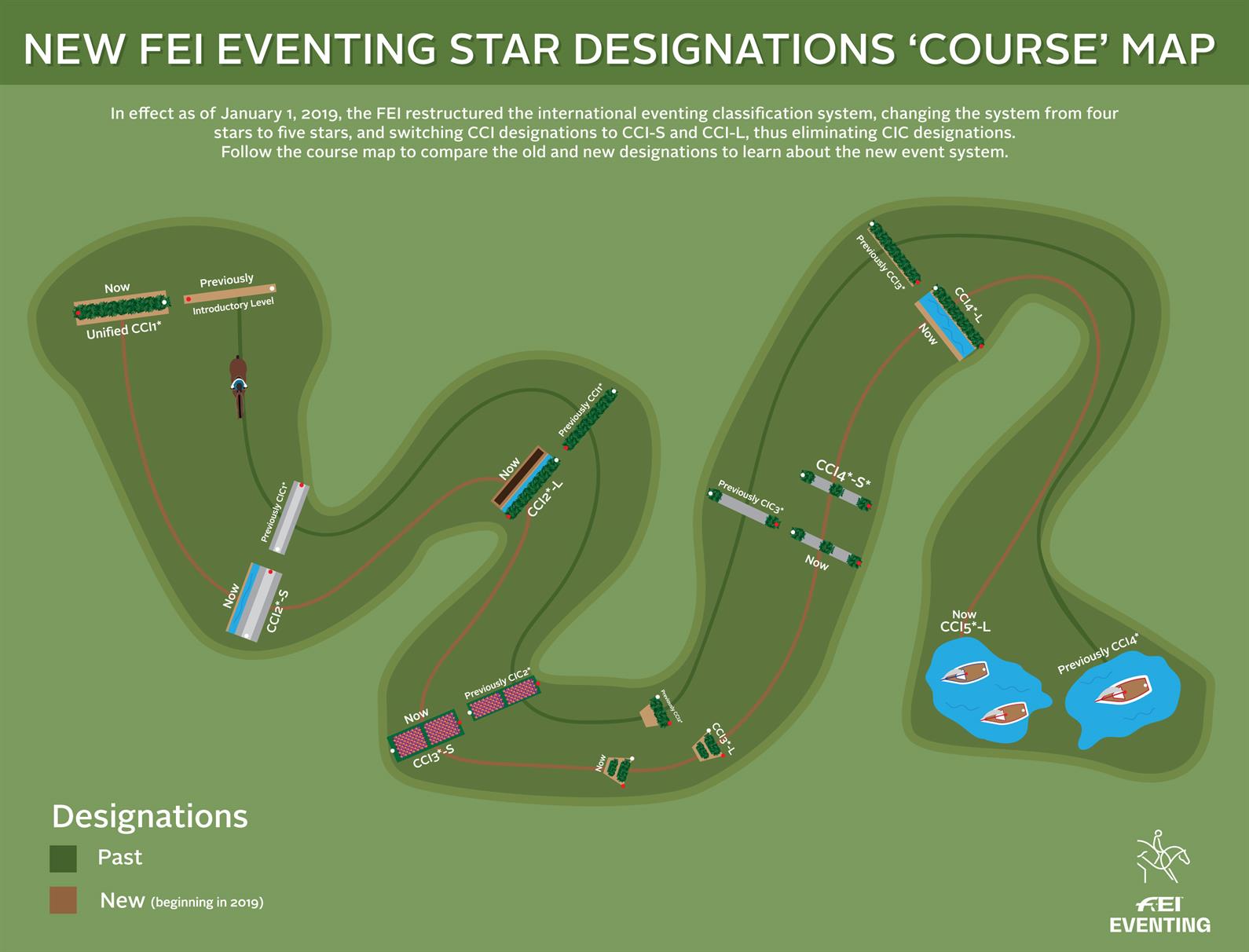
In 2018, the Fédération Equestre Internationale announced that beginning January 1, 2019, an official restructure of the international event classification system would go into effect. The new FEI star system included changing from a four-star to five-star categorization and the switch to CCI-S and CCI-L to indicate cross-country course length, thus eliminating the CIC designations.
The old FEI star system denoted international competition with one of two designations: Concours Complet International (CCI) or Concours International Combiné (CIC). When phases A, B, and C were still part of the endurance day of a three-day event, CCI indicated competitions with the full endurance day, while CICs were internationally-recognized horse trials that only ran phase D. When the phases A-C were permanently removed, the FEI changed the distances of CCI cross-country courses to be longer and contain more obstacles than CICs. The new system reflects this change, now designating long (-L) and short (-S) designations within the CCI category. Using CCI-L and CCI-S is intended to be a clearer way of distinguishing between the two types of competition.
To further demonstrate the difference between the old CCI and CIC categories, for example, in a CCI3*, the cross-country course can be between 5,700 and 6,800 meters and include 40 jumping efforts. By comparison, CIC3* cross-country is held between 3,200 and 4,000 meters with a maximum of 40 jumping efforts.
In the old system, there were four different levels of CCI/CIC competition: one-star (1*), two-star (2*), three-star (3*), and four-star (4*). The one-, two-, and three-star levels were closely equated to the national levels of preliminary, intermediate, and advanced. The four-star level indicated the highest level of competition within the sport, offered at six competitions around the world: Land Rover Kentucky Three-Day Event presented by Mars Equestrian (USA), Badminton Horse Trials (Great Britain), Burghley Horse Trials (Great Britain), Australian International Three-Day Event (Australia), Luhmühlen Horse Trials (Germany), and Les Etoiles de Pau (France).
The reasons for changing the star system were multi-faceted. First and foremost, changing from a four-star to a five-star system meant that the Olympic Games cross-country is now a three-star level of difficulty, allowing more athletes from more nations to have the opportunity to qualify, as well as making it easier for spectators to understand. Changes to the sport for the purpose of the Olympic Games, along with the star system change, included limiting nations to teams of three with no drop score and changing the level of competition that is now four-star dressage and show jumping, with a 10-minute, 45-effort cross-country course at the current three-star level.
Secondly, the current five-star system matches the existing five-star systems for the sports of FEI jumping (CSI) and dressage (CDI).
The new system designates a new introductory level as the new CCI1*-Intro, the CIC1* now as the new CCI2*-S, the CCI1* now as the new CCI2*-L, the CIC2* now as the new CCI3*-S, the CCI2* now as the new CCI3*-L, the CIC3* now as the new CCI4*-S, the CCI3* now as the new CCI4*-L, and the CCI4* now as the new CCI5*-L. There is currently no classification for CCI5*-S.


